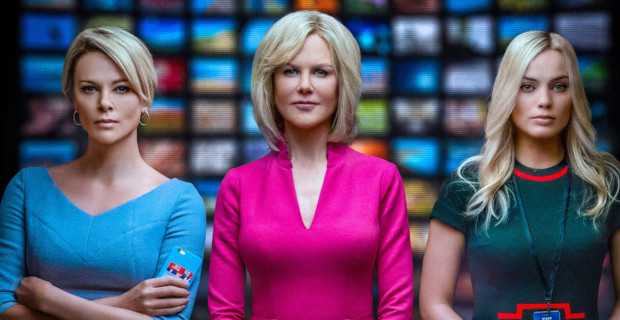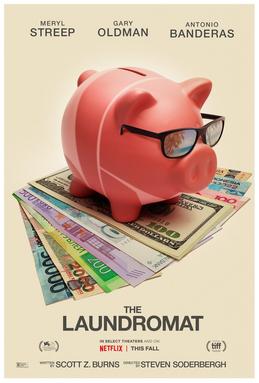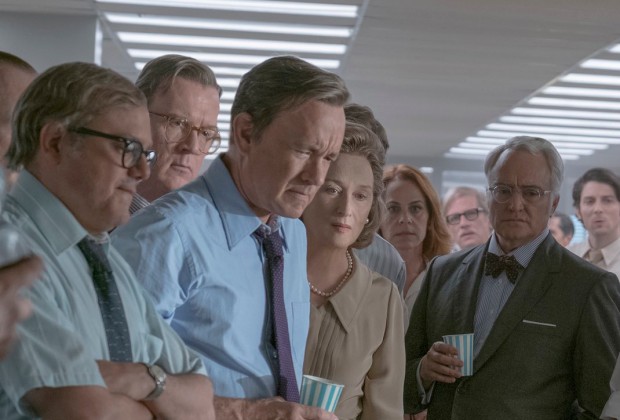Bombshell
Posted on December 12, 2019 at 5:38 pm
B +| Lowest Recommended Age: | Mature High Schooler |
| MPAA Rating: | Rated R for sexual material and language throughout |
| Profanity: | Very strong and crude language |
| Alcohol/ Drugs: | None |
| Violence/ Scariness: | Sexual pressure and harassment |
| Diversity Issues: | A theme of the movie |
| Date Released to Theaters: | December 13, 2019 |
| Date Released to DVD: | March 9, 2020 |

Those who watched “The Loudest Voice in the Room” on Showtime know that Ailes transformed the news media by creating a network that had two important innovations: gorgeous women in revealing clothes delivering news stories slanted toward white people who think their victimhood has been overlooked. As an executive puts it in this film, “You have to adopt the mentality of an Irish street cop. The world is a bad place. People are lazy morons. Minorities are criminals. Sex is sick, but interesting. Ask yourself, ‘What would scare my grandmother, or p— off my grandfather?’ And that’s a Fox story.”
The story is almost operatic in scope and drama and director Jay Roach and screenwriter Charles Randolph (“The Big Short”) hit the tone just right, the heightened urgency of the newsroom, the millions of small and devastatingly large compromises at the top of the media food chain.
The performances are sizzling. Gretchen Carlson (Nicole Kidman) is a fading star at FOX, relegated to off-peak programs. (I could not help thinking of this performance as a bookend with Kidman’s “To Die For,” with Kidman as a woman who was willing to do anything, including sexual favors and murder, to get a job on TV news.) Megyn Kelly (Charlize Theron) is a rising star, and as this movie begins, she is horrified to find herself in the middle of a story as then-candidate Donald Trump makes ugly and crude accusations because she surprised him by asking him to comment on some of his insults to women (“You’ve called women you don’t like fat pigs, dogs, slobs and disgusting animals”) in an on-air interview. Margot Robbie plays Kayla, a fictional character based on the ambitious lower-level staff and what those who asked Ailes for on-camera opportunities were expected to do to show their “loyalty.”
Some early critics of the film object to the women being portrayed as feminist heroines. But they are not portrayed as feminist heroines; on the contrary. They’re not fighting courageously for justice like Norma Rae or Erin Brockovich. They are carefully calibrating how much abuse, how many humiliations, how much indignity they are willing to trade for the professional opportunities they want, even when it means ignoring abuse of other women. Answer: a lot. Ultimately, there is a limit, though, and watching each character locate that line is what makes this movie smart and engrossing. For Carlson, it is being fired. For Kayla, it is a painful realization after the fact, and after someone else has taken the almost unthinkably daunting step of going first. And the stakes are clear. “Once you go public, no one will hire you,” Carlson is told. Her post-lawsuit career has focused on sexual harassment issues either because she now recognizes the importance of the issue or because she cannot get any other job. The week of the film’s release she wrote an op-ed in The New York Times calling on Fox to withdraw the non-disclosure agreement she had to sign in order to settle her case. It’s unlikely, but if they do, maybe we’ll get another movie out of it.
The focus here is on Kelly. It is one thing to burn your bridges after you have been fired and have nothing to lose, but it is entirely another for a woman near the top of her profession who says, “I’m not a feminist; I’m a lawyer,” who does not want to be the story, who is in cutthroat competition with the other beautiful blondes and not one to raise a fist and proclaim that sisterhood is powerful. What will it take to get her to speak out and what price will she pay for saying something? Kelly is a complicated character and the way her dilemma is presented here is complicated and nuanced, more directed toward nods of recognition than standing ovations. Her career has been rocky (except for financially) since her decision to acknowledge the abuse, which makes this a cautionary tale that does not make the prospect of feminist heroine-ing look very appealing.
What is even more fascinating here is the setting. Is Fox a news organization as it has traditionally been understood? We get glimpses of other Fox personalities, including Bill O’Reilly, who left Fox following his own #metoo abuses. The way the organization responds to Carlson’s claims — handing out “Team Roger” t-shirts before any investigation even though it is generally known why there’s a lock on his door and a separate entrance to his office — says something about whether “loyalty” is more important than the truth, to them and to us.
Parents should know that this film is based on the real life #metoo upheavals at FOX News, with explicit discussions and some depiction of sexual harassment, abuse, and predation, and very strong language.
Family discussion: Why did the three women respond differently? How has coming forward affected their careers? What is the best way to prevent abuse by people in power?
If you like this, try: “The Loudest Voice” miniseries and “The Hunting Ground”






